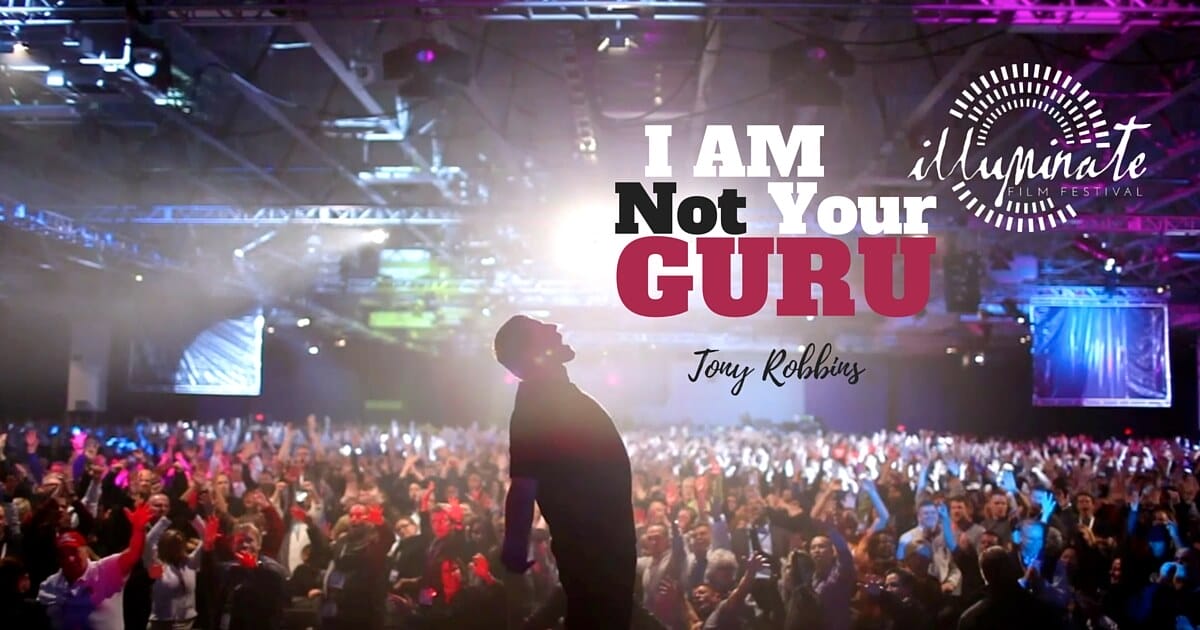Tony Robbins: I Am Not Your Guru

Christopher Buck: I’d just like to say I think you achieved your goal admirably. My wife and I, as we watched the film, we found several places where we found ourselves sitting very still with tears in our eyes as we were watching some of the transformations on the screen. And I think that as far as being able to reach out and touch your audience and enact a change or enact the ability to consider a change in viewing and lifestyle and things like that, I think you hit a homerun.
Joe Berlinger: The reaction has either been that or some people are, like, well, why didn’t you show the dark side? Why didn’t you show the people who didn’t have a good time? The intention of the film was to accurately capture the spirit in that room, and it will communicate something to some people, and it won’t communicate something to others, and that’s my job as a documentary maker.
But, hopefully, more people than not, will come away from the film, thinking about their lives and thinking about how to be more connected to one another and how to self-actualize improvement in their life.
Christopher Buck: Well, as I said, I think you did a wonderful job conveying that. Tony Robbins is obviously very high energy. How difficult was it from a filmmaker’s perspective to keep up with his pace and the interventions and the activity going on in the room?
Joe Berlinger: Yeah, it’s funny, and that’s a good question. On the one hand, this is the shortest period of any film I’ve ever made. I mean, it basically was a six-day event and then we shot a day or two on either side of the event, some of the interviews with Tony and with Sage. And, so, it was basically a nine-day shoot–nine or 10 days. I don’t remember exactly.
I’ve made films where I follow a story for years. The “Paradise Lost” trilogy, I don’t know if you’re familiar with that work, I made it with Bruce Sinofsky. We made films about the West Memphis case. And these are films that actually got these guys out of prison because they were wrongfully convicted. We spent 20 years making three different films to convince everybody that these guys were innocent. And ultimately, these guys got out, one guy off of death row and two guys had their life without parole sentences vacated.
So, those three films took 20 years. On the one hand, you could say, wow, you made a full film, a feature documentary with only a weeklong event. That’s probably the shortest shoot period I’ve ever had on a film . On the other hand, it was one of the most physically demanding films I have ever made because precisely of Tony Robbins’s energy, the fact that he’s on stage 10 to 12 hours, the people are in that room 12, 14 hours a day, kind of non-stop. It’s a very high energy environment and experience. And to keep up with that and to film it in such a way that, you see how close up we are and the cameras are right there in the action. It was very, very demanding physically to do that film. So, on the one hand, it’s the shortest– easiest amount of time I’ve ever had to make a film. But, on the other hand, I think it was physically one of the most demanding shoots we’ve ever done.
Christopher Buck: Well, it seemed like it was one of those things. It’s, like, okay, we’re going to film for those six days and then we’re going to sleep for two weeks and then we’ll come back and start working on the edit.
Joe Berlinger: Yeah, something like that. Well, it was exhausting on a certain level, physically exhausting, but it was also so inspiring. The biggest challenge was not so much the physical demands, but, you’re holding a camera. You’re thinking about filmmaking duties. There’s just a lot you have to keep track of while you’re making a film.
And my crew and I found ourselves so entranced by the material, what we were capturing, that sometimes, we had to fight the impulse. I kept finding myself drifting into the mode that I was in two years before when I was just a participant in discovering how powerful the event is. And now, I came back two years later as a filmmaker.
And when you’re making a film, you have to be somewhat distant from your subject so that you can do your job. I mean, obviously, you’re not disconnected from your subject because you have to connect with your subject and know what to film and where to shoot and all that stuff.
But, you can’t be getting so distracted that you’re not paying to the job at hand. And my crew and I felt ourselves getting drawn into the vibe of the room and what was going on. I caught myself a few times, like, oh, no, no, no, you’re not here to be at the seminar; you’re here to make a film.
Christopher Buck is the co-founder of Humanity Healing in 2007, which rippled out into the 501c3 public charity, Humanity Healing International, and its subsidiary, OMTimes Media. He is the CEO of both companies. In addition, Christopher serves as the Chairman of the Board of the Saint Lazarus Relief Fund, the 501c3 public charity for the Hospitaller Order of Saint Lazarus of Jerusalem. Christopher had the honor of being Knighted in Malta in 2014.




